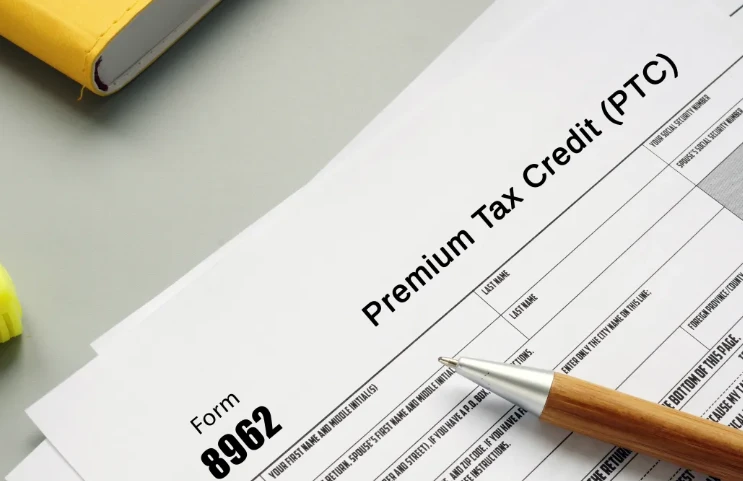Due to the Affordable Care Act (ACA), the Health Insurance Premium Tax Credit is applied to reduce your out-of-pocket costs on your health insurance premiums, however, there are factors that could cause you to overpay, if you do not report it properly
When you have health insurance through the insurance marketplace under the Affordable Care Act (ACA), and not sponsored by your employer, you are taking advantage of the health insurance premium tax credit, which allows your monthly health insurance premiums to be reduced. In other words, you receive this tax credit early so that you have affordable health insurance. However, if you are not careful on your tax return, you could pay more money than you should.
What is the Affordable Care Act (ACA)?
The Affordable Care Act (ACA) is a comprehensive health care reform enacted by former President Barack Obama in March 2010, better known as Obamacare, which includes policies aimed at affordable health care by extending health insurance coverage to millions of Americans who did not have it.
Most American workers purchase health protection through employer-sponsored health insurance. In this health insurance, both the employee and his or her spouse and dependents can be protected. When an employer does not offer this health insurance, taxpayers can apply the health insurance premium tax credit to obtain low-cost health insurance through the ACA.
Among the measures in this legislation is to reduce the cost of health insurance coverage for those who qualify. Premium tax credits and cost-sharing reductions are included to help reduce out-of-pocket costs for low-income individuals and families.
By the end of 2019, 11.41 million people had obtained insurance through one of the health care insurance exchanges, according to data from the Kaiser Family Foundation. Of those individuals, 8,515,524 people received total annual credits of $52.3 billion, with an average monthly credit of $512 per person.
Who qualifies for the health insurance premium tax credit?
The health insurance premium tax credit is intended to help people who are not insured through an employer-sponsored plan, and who earn less than 400% of the official federal poverty level.
By 2023, the bottom 400% of the poverty level would be that person earning less than $58,320. To this figure is added $20,560 for each new family member, e.g., a two-person household is in the bottom 400% of the poverty level at $78,880; a three-person household, less than $99,440, and so on. Alaska and Hawaii have different poverty level figures.
The eligible credit for anyone is based on your income, where you live, and the size of your household. The less money you earn and the larger your household, the higher your credit.
You may also qualify if you or your spouse (if filing taxes jointly) received or were approved for unemployment compensation during any week beginning in 2021. The amount of your household income is considered to be no more than 133% of the federal poverty rate for your family size and you are considered to meet the family income requirements for eligibility for a Premium Tax Credit.
To qualify, it is paramount that you are not claimed as a dependent of another taxpayer.
How do I apply the health insurance premium tax credit?
Most people apply for the health insurance premium tax credit at the very moment they enroll in health insurance through their state’s marketplace. Based on your income and household size, the health insurance premium tax credit is applied to your monthly health insurance payments to reduce your out-of-pocket costs.
If the individual or family does not sign up for health insurance and does not apply for government subsidies, they can receive the full annual amount at the end of the year, reducing taxes owed or increasing their refunds.
How do I claim the health insurance premium tax credit so I don’t overpay?
Because the health insurance premium tax credit is usually applied up front during the tax year in which you make your health insurance payments, it is common for many taxpayers to forget to report changes in life circumstances that could cause their eligibility to change, such as a change in your income (decrease or increase) or new members in your household makeup. These changes can increase or decrease the amount of your tax credit. If you reduce the amount of your credit, you may owe this money on your next tax return.
There are two ways to report these life changes to avoid overpaying on your health insurance premium tax credit to avoid overpaying on your next tax return:
1. report the change to your health insurance: when your income decreases or increases in the current year, your household makeup changes, or you or your spouse receive unemployment benefits, you can report the change immediately to your health insurance. Any updates can be made through an account on the HealthCare.gov website, by phone with your state’s marketplace call center or in person at your health insurer’s office.
2. Use Forms 1095-A and 8962: If you forgot to report these changes or aren’t sure if you should have, you can add Form 1095-A, Health Insurance Marketplace Statement, and Form 8962, Premium Tax Credit, to your next tax return.
Form 1095-A must be filed by the health insurer if you or one of your dependents had coverage through a state insurance marketplace. You will then use the information on this form to complete the required data on Form 8962 to claim the credit or reconcile the health insurance premium tax credit with advance payments of the credit.
Remember to add Form 8962 to your Forms 1040 (SP), 1040-SR (SP), or 1040-NR.

